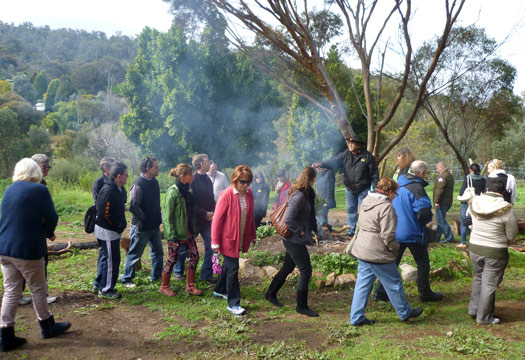Search
Showing results for "Au"
Research
The Importance of Scabies Co-Infection in the Treatment Considerations for ImpetigoTreatment success for scabies co-infection was lower than for impetigo overall, with a higher success seen in the co-trimoxazole group than benzylpenicillin
Research
How ‘healthy’ do children really need to be? Going beyond the limitsThe authors assessed the impact of including preschool‐aged children with a history of preterm birth, early life wheeze, asthma diagnoses and/or recent respiratory symptoms in healthy reference ranges for respiratory impedance using the forced oscillation technique (FOT).
News & Events
Large-scale study uncovers a single major genetic risk factor for fatal parasitic diseaseResearch has identified a critical genetic risk factor for a potentially fatal parasitic disease that affects up to 400 thousand people a year, mostly children.
Research
Active Case Finding for Rheumatic Fever in an Endemic CountryAsha Jonathan Bowen Carapetis AM BA MBBS DCH FRACP PhD GAICD FAHMS OAM AM MBBS FRACP FAFPHM PhD FAHMS Head, Healthy Skin and ARF Prevention Executive
The Australian Rett Syndrome Study is based at The Kids Research Institute Australia located in Subiaco, Western Australia. This study was established in 1993.
Find out how The Kids Research Institute Australia works with Government to influence policy and practice.

News & Events
Elders insight leads to spine-tingling breakthroughDr Michael Wright remembers the 'aha' moment while working with distressed Nyoongar families to identify what was limiting engagement with services.
Research
Global and regional mortality from 235 causes of death for 20 age groups in 1990 and 2010: A systematic analysis for the Global Burden of Disease Study 2010Reliable and timely information on the leading causes of death in populations, and how these are changing, is a crucial input into health policy debates.
Research
Topical antibiotics for chronic suppurative otitis mediaWe are uncertain about the effectiveness of topical antibiotics in improving resolution of ear discharge in patients with chronic suppurative otitis media
Research
PCV10 elicits Protein D IgG responses in Papua New Guinean children but has no impact on NTHi carriage in the first two years of lifeNasopharyngeal colonisation with nontypeable Haemophilus influenzae (NTHi) is associated with development of infections including pneumonia and otitis media. The 10-valent pneumococcal conjugate vaccine (PCV10) uses NTHi Protein D (PD) as a carrier. Papua New Guinean children have exceptionally early and dense NTHi carriage, and high rates of NTHi-associated disease.
